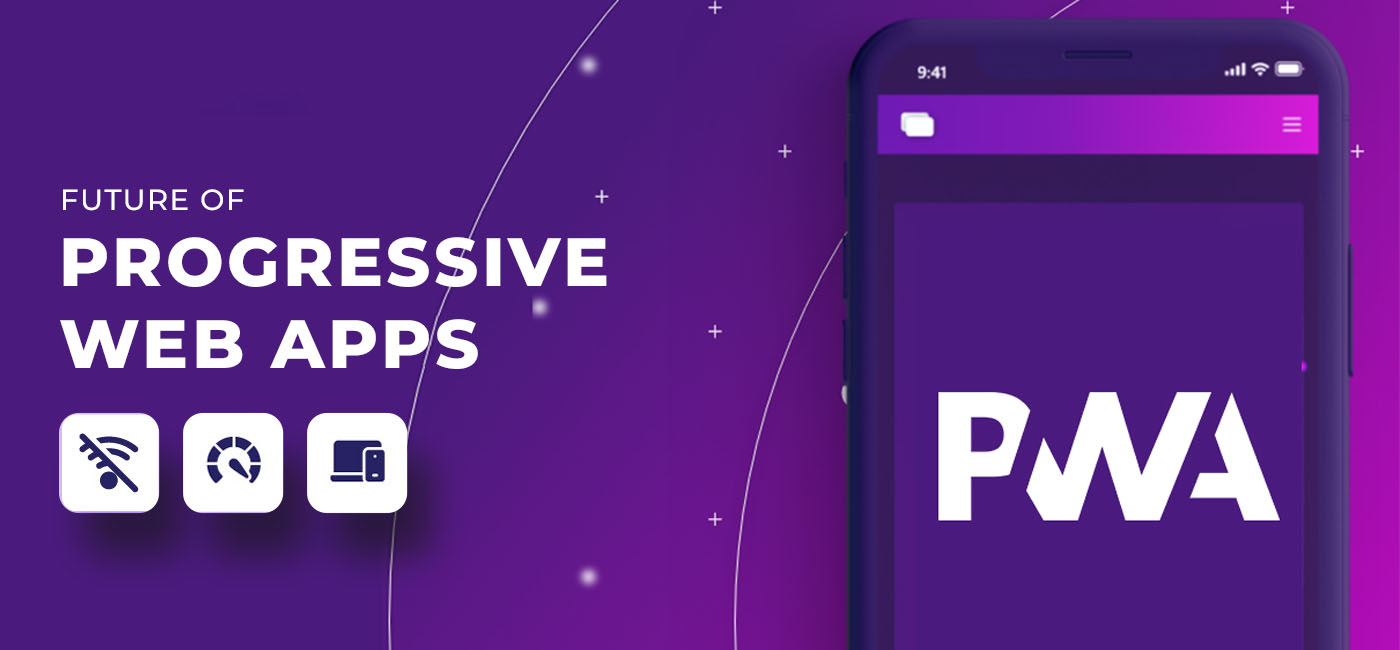
Why Is PWA The Future Of Web Development?
A strong mobile presence is essential for anyone who wants to stand out in a world where two-thirds of people are connected through mobile devices. The key challenge is reaching mobile and desktop customers without creating and maintaining a mobile app (for iOS and Android) and a responsive website.
This article analyses if Progressive Web Applications (PWAs), which have gained popularity in recent years, really constitute the future of web design. Many web developers have come to believe that PWAs are the ideal solution. So, let's begin.
What Are Progressive Web Apps?
Although Progressive Web Applications was first used in 2015, which is essentially a century ago in terms of web development, there is still some ambiguity over their structure. PWAs, in their simplest form, are webpages that mimic mobile apps by utilizing web technologies to combine the finest features of both the web and native environments.
Progressive Web Applications are created with modern APIs to provide better characteristics, including stability, functionality, and installability, without taking up much storage space. Some well-known PWA includes Uber, Twitter, Spotify, and Pinterest.
PWA has a number of advantages, including faster load times, better performance in turbulent network situations, more storage capacity, updates, and so on. These features boost business engagement and conversions.
One of the best examples of PWA is Pinterest, which reported gains in key performance metrics, including a 60% increase in core engagement, a 40% increase in Ad Clickthroughs, and a 44% growth in user-generated Ad revenues. Another example is Twitter which witnessed an increase of 65% in pages per session, 75% in the number of tweets sent, and a significant reduction of 20% in bounce rate.
These data raise the question: Are Progressive Web Applications The Future for every product with an app?
Advantages of PWAs
The following are some benefits of Progressive Web Apps (PWA) that set them apart from Native Applications:
Cost-effective: A PWA may be created and maintained for substantially less money. This is because the development team doesn't have to invest resources in developing numerous applications for various platforms.
Ease of Maintenance: With PWAs, maintenance is also simpler because you aren't building several applications for different platforms.
Smaller Size: PWA uses less disc space on a digital device than a typical application.
Cross-Browser Compatibility: The PWA works with a variety of hardware and web browsers.
Auto Updates: The PWAs are updated automatically, in contrast to Native Applications. There is no requirement for the development team to release numerous versions for distinct platforms.
Offline Support: PWAs provide simple access even when network connectivity is unavailable. The user can access the data via the Smart Cache option, and the information is kept as Cache.
Low Bounce Rate: Google claims that if a site takes more than three seconds for loading, most internet users will go to another one. The average bounce rate for a PWA is thought to be around 42%. Since PWAs are more compact than native web applications, they load faster and have a lower bounce rate.
Native App features: The majority of native app capabilities, including offline functionality, push notifications, and many others, are supported by progressive web applications.
Are Progressive Web Apps the Future?
Let's now talk about the influence of PWAs across different domains. Here are a few of the areas where PWAs have had a significant beneficial difference:
Social Media: PWA has significantly impacted social media sites like Twitter and Twitter Lite for smartphones. It aided in the optimization of Twitter's website and decreased its bounce rate by roughly 20%. They helped increase the number of pages each session by 65% in Twitter Lite.
Online booking services: Many individuals use online ordering services to place orders for food, taxi rides, and even to complete tasks. Yet, native web applications have always been reliant on network connectivity. PWAs have overcome this issue by improving network connectivity and conversion rates for online service providers.
Traditional Media: The PWAs' Smart Cache feature helps a variety of educational institutions raise their interaction rates. When a user navigates to a website, the device can save the website's data in local storage. This protected data is accessible afterward to the user. Media organizations like The Washington Post, BBC, etc. have already developed a progressive web application for their users. This has allowed them to distribute the content more effectively across different digital platforms.
Business: PWAs are dramatically changing conversion rates for organizations transitioning from native to advanced web applications. PWA gives users the option to open applications with just one button click. Businesses have been able to use their applications more frequently and ship their products more quickly with PWAs.
PWAs are gaining popularity, and the IT industry is investing significantly in these programs. Progressive Web Applications are already supported by browsers like Google Chrome and Opera, while Microsoft Edge, Safari, and Firefox are working on adding them. Hence, undoubtedly, progressive web applications may eventually replace traditional web applications.
The Bottom Line
PWAs are strong, efficient, quick, and app-like.
It's difficult to think of a mobile web application that a PWA solution could not dramatically enhance. They may also displace the requirement for many current native "vanity" apps.
In other words, the moment has come to include these technologies in your ecosystem of client touchpoints.
Progressive Web Applications must be seriously considered for all initiatives, especially those involving the mobile web. Connect with us if you'd like to have a detailed conversation with one of our experts about your situation.